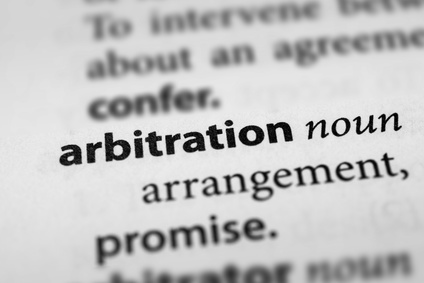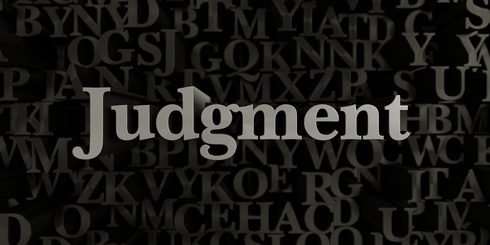The U.S. Court of Appeals for the Eleventh Circuit recently held that a voicemail from a debt collector that merely asks for the debtor to call back constitutes an initial communication under the federal Fair Debt Collection Practices Act (FDCPA) requiring the so-called “mini-Miranda” warning. In so ruling, the Court also held that a debt collector employee does not need to reveal his or her name to provide “meaningful disclosure” of the caller’s identity. A copy of the opinion in Hart v. Credit Control, LLC is available at: Link to the Opinion. The defendant debt collector left a voicemail for the…
Posts tagged as “Debt Collection”
The U.S. Court of Appeals for the Ninth Circuit recently held that, where husband and wife debtors fraudulently transferred assets, the creditor was entitled to the full sum the creditor would have recovered and was not limited to the amount of the collateralized debt. In so ruling, the Ninth Circuit reversed a bankruptcy court and trial court judgment in the creditor’s favor that the debt was non-dischargeable due to the debtor’s fraud, but improperly limiting the non-dischargeable debt to only the collateralized amount. A copy of the opinion in DZ Bank AG Deutsche Zentral-Genossenschaft Bank v. Meyer is available at: Link to Opinion.…
In a split decision, the U.S. Court of Appeals for the Fifth Circuit recently decided that attorneys representing a condominium association did not violate the federal Fair Debt Collection Practices Act by threatening non-judicial foreclosure on debt that was partially but not fully time barred. A copy of the opinion in Mahmoud v. De Moss Owners Ass’n Inc. is available at: Link to Opinion. The plaintiffs owned a condominium in Houston, Texas. They sued the condominium ownership, its management company and its collection lawyers concerning their efforts to collect assessments and other charges under the association’s declaration and related documents.…
The U.S. District Court for the Eastern District of New York recently granted in part and denied in part a mortgage servicer’s motion to dismiss a borrower’s claim that the servicing transfer notice supposedly violated the federal Fair Debt Collection Practices Act (FDCPA) because it allegedly did not disclose that the debt was increasing due to interest, and that a “door knocker” notice posted on the borrower’s door failed to state that it was from a debt collector. The Court held that under Avila v. Riexinger & Associates, LLC, 817 F.3d 72 (2d Cir. 2016), a debt collector must disclose…
The U.S. Court of Appeals for the Fifth Circuit recently affirmed summary judgment under the Fair Debt Collection Practices Act (FDCPA) in favor of the debtor and against a debt collector, where the debt collector failed to mark the debtor’s account as disputed when it credit reported the account. The debt collector admitted that it had not marked the account as disputed because it incorrectly believed that credit reporting a debt as disputed was subject to the requirements of 15 U.S.C. § 1692g, which governs validation of a debt and the treatment of disputed debts. In so ruling, the Fifth…
The U.S. Court of Appeals for the Ninth Circuit recently affirmed the district court’s judgment in favor of the U.S. Small Business Administration in a Federal Debt Collection Procedures Act (FDCPA) lawsuit the SBA filed against a loan guarantor to satisfy a default judgment assigned to it after the guarantor disclaimed an inheritance to avoid paying the judgment. The Federal Debt Collection Procedures Act, 28 U.S.C. §3001 et seq., which governs the collection of money owed to the U.S. government, should not be confused with the federal Fair Debt Collection Practices Act, which is found at 15 U.S.C. §1692 et…
The Court of Appeals of Maryland, the state’s highest court, recently held that a debt collector waived its contractual right to arbitrate the claims against it when it chose to litigate the collection action outside of arbitration. The Court also held that a finding of prejudice was not required under Maryland law to find waiver of the right to arbitrate. A copy of the opinion in Cain v. Midland Funding, LLC is available at: Link to Opinion. A consumer opened a credit card account in 2003. The account agreement contained an arbitration provision that permitted either party to elect mandatory,…
The U.S. Court of Appeals for the Seventh Circuit recently held that a bank’s lawsuit against the husband of a debtor who had filed for bankruptcy did not violate the co-debtor stay because the husband’s credit card debts were not a consumer debt for which the debtor was personally liable. A copy of the opinion in Smith v. Capital One Bank (USA), NA is available at: Link to Opinion. A debtor filed for bankruptcy in 2011. During the course of the bankruptcy proceedings, a bank filed suit and obtained a judgment against the debtor’s husband on a credit card debt…
Applying Campbell-Ewald, the U.S. Court of Appeals for the Sixth Circuit revived a consumer plaintiff’s ability to proceed with a putative class action, holding that an unaccepted offer of settlement or judgment generally does not moot a case, even if the offer would fully satisfy the plaintiff’s demands for relief.
The U.S. Court of Appeals for the Ninth Circuit recently held that the trustee of a California deed of trust securing a real estate loan was not a “debt collector” under the federal Fair Debt Collection Practices Act, because the trustee was not attempting to collect money from the borrower. In so ruling, the Court held that “actions taken to facilitate a non-judicial foreclosure, such as sending the notice of default and notice of sale, are not attempts to collect ‘debt’ as that term is defined by the FDCPA.” The Court also vacated the dismissal of the borrower’s federal Truth…
The U.S. Court of Appeals for the Fourth Circuit recently confirmed that a law firm and its employees, who pursued foreclosure on behalf of creditors, were acting as “debt collectors” under the federal Fair Debt Collection Practices Act (FDCPA) when they pursued foreclosure proceedings against a borrower. In so ruling, the Court also confirmed that a servicer that does not also own the mortgage loan does not have a duty to provide notice of the sale and assignment of a loan to itself under the federal Truth in Lending Act (TILA) merely because it accepts the assignment of the deed…
The U.S. Court of Appeals for the Eleventh Circuit recently held that the federal Fair Debt Collection Practices Act’s venue provision did not apply to post-judgment action garnishment proceedings. A copy of the opinion in Ray v. McCullough Payne & Haan, LLC is available at: Link to Opinion. A debt collector filed a collection action. In compliance with the FDCPA’s venue provision, the debt collector brought that action in Fulton County, Georgia, where the debtor resided. After obtaining a judgment against the debtor in that action, the debt collector initiated a garnishment proceeding against the debtor’s bank to collect on the…












